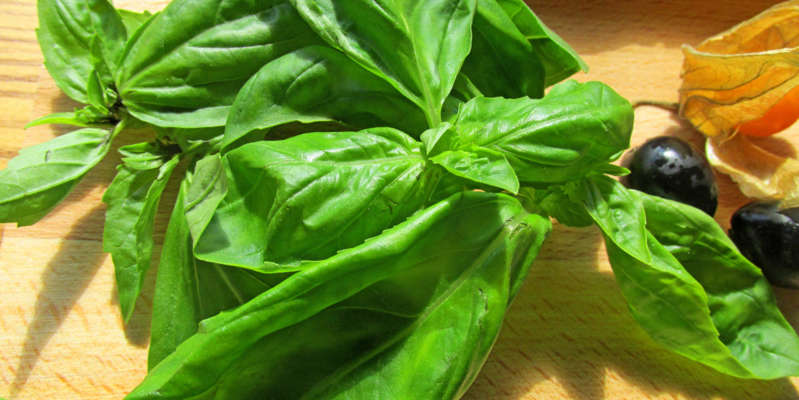
Scientists have found that basil can protect against Alzheimer's disease
Eating sweet basil can slow cognitive decline, University of South Florida researchers said in Frontiers in Aging Neuroscience .
They found a natural compound fenchol in the leaves of this plant, which is able to protect the brain from Alzheimer's disease. This effect is related to the mechanisms of its perception by the gut microbiome.
Professor Hariom Yadav, who led the study, observed the interactions between the gut and the brain at the molecular level to determine how this connection affects brain health and cognitive decline.
Scientists have found that the free fatty acid receptor FFAR2 is activated by short-chain fatty acids from the intestine. They play a major role in maintaining brain health and are depleted in Alzheimer's.
“Our study found that stimulating the FFAR2 sensing mechanism by these microbial metabolites could be helpful in protecting brain cells from the toxic beta-amyloid protein that increases in Alzheimer's disease,” Yadav said.
Fenchol, which gives basil its specific aroma, best stimulates the FFAR2 receptor. Experiments in rodents and humans have shown a significant reduction in the risk of amyloid plaque formation in the brain and neuronal death when stimulated with FFAR2. To discover the medicinal properties of fenchol, researchers tested 144,000 natural compounds.
Earlier, MIR 24 gave some simple rules on how to avoid Alzheimer's disease. You need to follow your biorhythms, allocating enough time to sleep. You also need to switch to proper nutrition and exercise.

